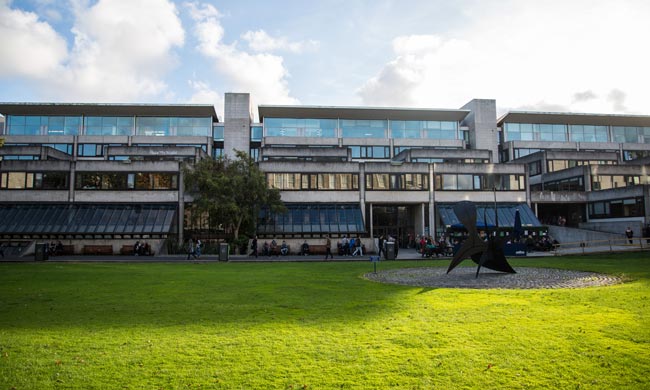From next year, several arts subject combinations will be discontinued, as College scraps the existing TSM structure in favour of a simplified entry system.
As part of the new joint-honours arts programme, subjects will now be organised into four “pillars”, with all subjects in the same pillar being arranged in the same weekly slots on students’ timetables – limiting the number of subject combinations due to timetable clashes.
History and French, for instance, are both in pillar one, meaning students will no longer be able to study the two together.
Speaking to The University Times, Senior Lecturer Kevin Mitchell said the move will allow College to introduce “a timetabling process that’s more principled, using the pillars as a basis”.
“It sounds like a logistical detail, but actually all of the Trinity Education Project architecture hangs on it”, he said.
The 2018/19 intake will be the last cohort to take TSM in its current format, after a College-commissioned report recommended last year that it should be scrapped. Currently, TSM allows students to study over 26 subjects, with 183 possible combinations. Under the new pillar system, students can choose one subject per pillar and cannot take their two subjects from the same pillar.
Psychology will no longer be available as a joint-honours course under the changed structure to the arts programme. Students wishing to study psychology, which is typically a high-points course, will have to apply to the single-honours course.
Certain joint-honours language courses will also be unavailable under the new proposed structure, in a move that has prompted dissent from the School of Languages, Literature and Culture. At a meeting of University Council in March, Vice-Provost admitted that the change would remove some options for language combinations, but said there are still more available combinations in the proposed model than there are active combinations currently.
Mitchell said that over the years, many of the courses offered by TSM “had no students [who] had ever taken them”.
“The rationale for maintaining that as a separate option wasn’t very strong”, he said.
Mitchell said TSM was “too complicated to allow” for College to implement its plans regarding the diversification of its education, as part of the ongoing implementation of the Trinity Education Project, a dramatic reimagination of Trinity’s undergraduate curriculum.
“Part of the rationale for consolidating TSM was to allow the options that are in the Trinity Education Project, which are taking a module outside your discipline”, he said.
The first pillar includes classical civilisation, drama, French, mathematics and history. Ancient history and archaeology, economics, English, Italian and music make up pillar two.
Film studies, history of art and architecture, Jewish and Islamic civilisations, sociology, German and Russian are all included in the third pillar, while the fourth pillar consists of classical languages, geography, religion, modern Irish, philosophy and Spanish.
Morash noted that “there was a logic to the combinations in the proposed structure and the structure allows for the inclusion of new subjects”.
This overhaul of TSM will come one year after the implementation of new entry routes to the general science course. Following a lengthy review, general science was scrapped and students now choose between four strands: physical sciences, chemical sciences, biological and biomedical sciences, and geography and geoscience. Other direct-entry science courses like nanoscience and genetics were amalgamated into this new structure.







